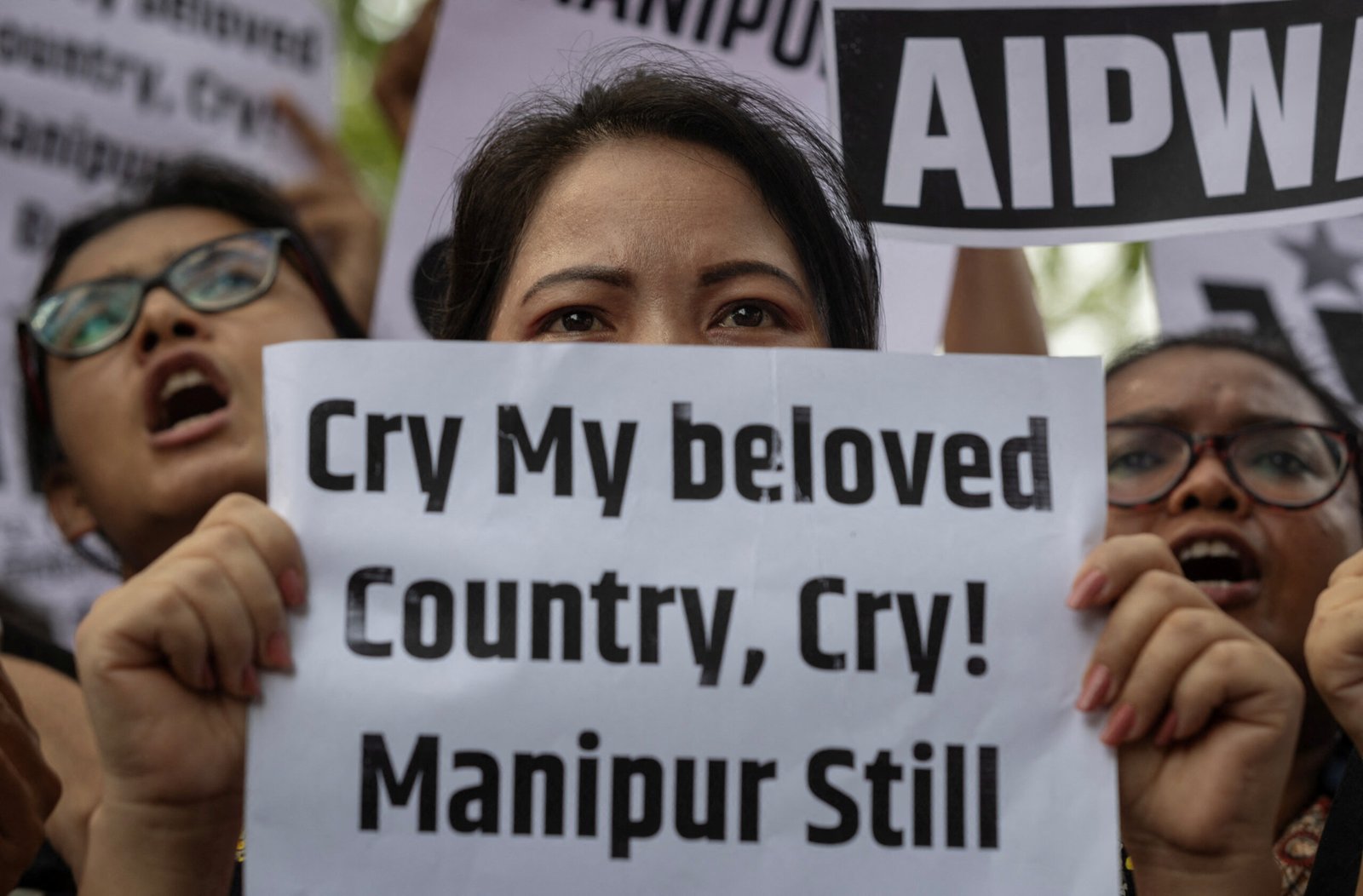India’s parliament faced disruptions for a second consecutive day on Friday, as women’s groups planned protests across the country in response to a sexual assault case that occurred during ethnic clashes in the state of Manipur. The violence in Manipur, which began on May 3, has resulted in the deaths of at least 125 people and the displacement of over 40,000 individuals. The clashes originated from a conflict between the Kuki tribal group and the Meitei ethnic majority over the distribution of economic benefits and quotas. The Indian government deployed thousands of paramilitary and army troops to quell the violence, but sporadic incidents and killings have continued, leading to a tense situation in the state. Recently, videos depicting the molestation of women during the clashes have emerged, causing national outrage.
The Manipur violence began on May 3 when members of the Kuki and Naga tribes, who are considered India’s most disadvantaged groups, protested against the potential extension of benefits to the dominant Meiteis. The Meiteis, who make up half of Manipur’s population, have long sought special benefits and received support from the Manipur High Court in April. Granting them limited affirmative action quotas would allow them to access education and government jobs reserved for the Kukis and Nagas. The Meiteis traditionally reside in the more prosperous valley region of Manipur, while the Nagas and Kukis inhabit the underdeveloped hills. The development imbalance between the valley and hills has been a source of contention and rivalry between the ethnic groups.
Several triggers contributed to the escalation of tensions between the groups. The coup in Myanmar in 2021 led to an influx of refugees into Manipur, causing Meiteis to fear being outnumbered by the Kukis, who share an ethnic lineage with Myanmar’s Chin tribe. Additionally, the state government’s eviction drive in February, aimed at removing tribal communities from forests in the hills, further angered the tribal people, who felt they were being forced out of their homes. These events exposed long-standing fault lines that had been building up over time.
Despite initial efforts to quell the violence, sporadic reprisal attacks resumed shortly after the first outburst. Both the Meiteis and Kukis possess a significant number of arms, including stolen weapons from the state police and those sourced from Myanmar. The Indian government has engaged in talks with Myanmar leaders to address the issue of armed groups operating from across the border, but no concrete results have been achieved thus far. Additionally, the refusal of Kuki and Meitei groups to join a peace panel formed by the federal government due to disagreements over panel members has hindered progress. The Indian Army and federal paramilitary forces in the state are legally bound to work with the state police and authorities, who are themselves divided along ethnic lines. Furthermore, Kukis have accused Chief Minister Biren Singh, a Meitei and the leader of the Bharatiya Janata Party-ruled state government, of complicity and inaction, demanding his removal. Singh has denied these allegations.
In conclusion, the ongoing violence in Manipur has resulted in significant casualties and displacement, with tensions remaining high. The conflict stems from economic and ethnic disparities between the Kuki and Meitei groups. Various triggers, such as the influx of refugees from Myanmar and the state government’s eviction drive, have exacerbated the situation. Efforts to restore peace have been hindered by the presence of arms, divisions among ethnic groups, and disagreements over peace panel members. The resolution of this conflict requires a comprehensive approach that addresses the underlying issues and promotes inclusivity and equality among all ethnic groups in Manipur.
























